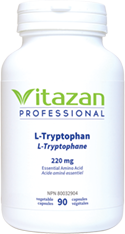Up to 13 per cent of new mothers experience postpartum depression. And now there’s a natural treatment that may help prevent it.
Postpartum Blues are quite common after giving birth, and usually start around 4-7 days postpartum. Postpartum Blues and Postpartum Depression are not the same thing, but when the blues get severe it significantly increases a woman’s risk of being diagnosed with Postpartum Depression. Postpartum Blues are caused by a surge in the enzyme monoamine oxidase (MAO-A), which breaks down our three “happy neurotransmitter” molecules: dopamine, serotonin and norepinephrine. Having these chemicals depleted can lead to feelings of sadness and lack of motivation. An increase in MAO-A is also observed in people who suffer from depression, so trying to reduce this surge soon after it starts is an essential component of successful treatment of Postpartum Blues. The typical peak for monoamine oxidase levels in women is 5 days postpartum. This is the time when postpartum blues are most pronounced. Usually they resolve 10 days after giving birth, but when symptoms are intense, the risk of postpartum depression increases four-fold.
The study and what was used
There was a small, non randomized open label study in the Proceedings of the National Academy of Sciences (PNAS) on 20 women that used a simple supplement intervention taken over 3 days, started after 3 days postpartum.
The supplement that they used in this study contained:
- Tryptophan– Building block of serotonin
- Tyrosine– Building block of dopamine
- Blueberry Extract– Anti-inflammatory effects and to help above two molecules cross the blood brain barrier
This simple intervention is something that new moms can do at home to help ease their transition after giving birth.
The participants in this study were given the supplements in the following manner over 3 days:
- Night of Postpartum Day 3- Blueberry drink (Extract and Juice)
- Morning of Postpartum Day 4- Blueberry drink (Extract and Juice)
- Night of Postpartum Day 4- Blueberry drink (Extract and Juice) and 2g L-tryptophan capsules
- Morning of Postpartum Day 5- Blueberry drink (Extract and Juice) and 10g L-tyrosine capsules
Blueberry extract was added to juice due to anthocyanin destruction that happens when blueberries are pasteurized in the making of juice.
Is this safe while breastfeeding?
The levels given of L-tryptophan and L-tyrosine are higher than you would get from diet alone, but they did not affect the overall concentrations in breast milk, meaning they were determined to be safe for breastfeeding. There were no negative effects of the supplements.
Conclusions
On postpartum day 5 the women underwent tests to assess their mood. One of the ways they were tested is via sad mood induction, which measured their ability to be resilient against sad events. The women read statements that expressed pessimism, dissatisfaction and lethargy, and listened to sad classical music. Depressive symptoms were measured both before and after. There was a stark difference in the women who received the supplements and those who did not. The women who received the supplements did not experience any depressed mood, while the women who did not receive the supplements had an increase in depression scores.
These results are very impressive! This simple intervention can help to stabilize mood in moms which could help to smooth out their transition to mother hood and would make them more resilient to the challenges that early breast feeding can present.
These are the professional supplements I might use in this protocol:

Final Thoughts
This study is a great example of how our moods can be so greatly impacted by the foods we eat.
Another well studied intervention for Postpartum Blues and Postpartum Depression is fish oil. Fish oil, specifically the DHA component of the oil can help to stabilize mom’s mood and helps with baby’s brain growth postpartum.
One great way to help a new mom is to ensure mom is eating the right foods. Here is a recipe for a postpartum smoothie that is high in the nutrients necessary to help reduce the symptoms of Postpartum Blues.
Postpartum Blues Smoothie
Serves 2
- 2 Cups Water
- 2 Cups Baby Spinach
- 1 ½ Cups Frozen Blueberries
- 3 Chunks Frozen Pineapple
- 1 Avocado
- ¼ Cup Cashews (soaked in water)
- ¼ Cup Hemp Seeds (soaked in water)
How to make: Combine Cashews, Hemp Seeds and Water and allow to soak for 10-20 min before blending. Blend until smooth.
Add in Baby Spinach, Frozen Blueberries, Frozen Pineapple, and Avocado. Blend again until smooth. Divide into glasses and enjoy!
If you want add a blueberry extract from Canadian grown blueberries, Natural Factors is a reputable brand that sells one. Take as directed on label.
To book an appointment with me:
-Dr Diana Semjonov, ND
References:
Dowlati, Y., Ravindran, A. V., Segal, Z. V., Stewart, D. E., Steiner, M., & Meyer, J. H. (2017). Selective dietary supplementation in early postpartum is associated with high resilience against depressed mood. Proceedings of the National Academy of Sciences of the United States of America, 114(13), 3509–3514. https://doi.org/10.1073/pnas.1611965114
This article is for educational purposes only and does not advocate self-diagnosis. Due to individual variability, consultation with a licensed health professional, such as a naturopathic physician is highly recommended prior to starting a natural treatment plan.


0 Comments Leave a comment